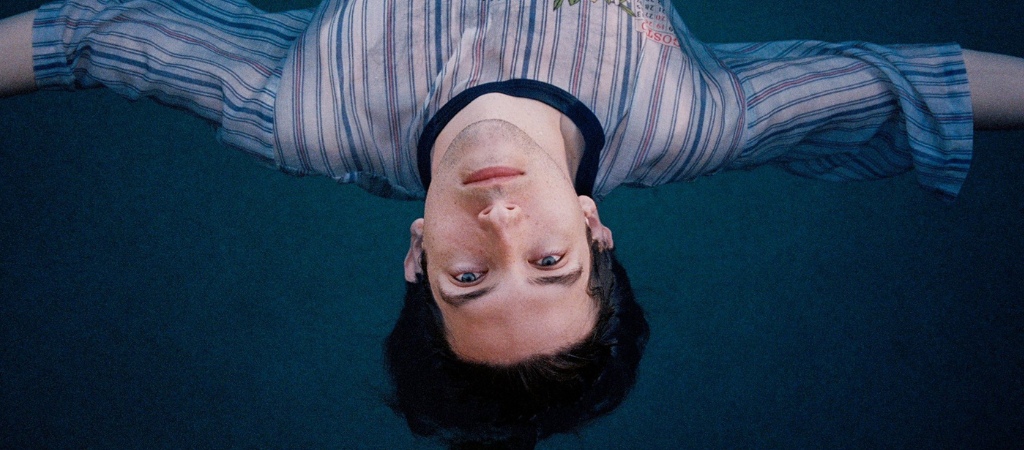
Ricky Montgomery
Official Site
Music has always lured Ricky Montgomery back. He blames the internet. First a devotee of the Vine underground, then—more than half a decade and several jobs later—an unexpected hitmaker, the Los Angeles native has spent the last few years trying to reconcile with his artist self. He has already surpassed one billion global streams thanks to Platinum-selling indie-pop hits “Mr. Loverman” and “Line Without a Hook.” But those songs, written when he was a teenager, have come to feel like they were written by a whole different person—at least to Ricky. So here comes Rick, his first full-length album on Warner Records, a labyrinthine alt-pop collection of stories about life in all its messy and mundane glory.
Rick is only Montgomery’s sophomore album, but it’s rich with maturity, down to the title itself. Rick is a name the singer always assumed he’d eventually take on—“it seemed more ‘adult,’” he quips—but never had the nerve to. Instead, he embodies the role through a soul-searching mix of electro-laced, emo-tinged tracks that balance sadness and doubt with lightness and levity. His lyrics dig deep and cut sharp as he navigates his wildest highs (doing cocaine for the first time) and most devastating lows (coping with his father’s death).
“Rick is about my long, awkward path toward remembering myself as an artist. It’s been embarrassing and difficult, but also thrilling—kinda like changing your first name,” he says. “It’s everything I’ve ever wanted to do but was too scared to try.”
Working alongside Grammy-winning vets Dan Wilson and Jeremy Hatcher and Grammy-nominated producer Tommy English, Montgomery pushes his limits as a songwriter. There’s still that sunny, sardonic urgency of his early work, now heightened with a lusher, fuller sound on nostalgia-pop singles “Eraser” and “Don’t Say That.” His wit remains refreshingly intact: “I’m not fun, but at least I’m not as sad as I used to be,” he teases on the swirling experimental bop “Boy Toy.” And so does his sincerity, with tracks like “One Way Mirror,” a gentle lament that hints at the airy eeriness of Elliott Smith.
The album’s title also alludes to Montgomery’s father, nicknamed Rick, who died by suicide in 2009. “We thought it was an accident, but later found out that it wasn’t,” he explains. The singer faces that traumatic discovery on “Black Fins,” one of the album’s most gut-punching statements. “Calling the album ‘Rick’ is as much a goof as it is a magic spell to lay those feelings of resentment to rest,” he says.
Montgomery sees Rick as something of a spiritual sequel to 2016’s Montgomery Ricky—another self-titled album that isn’t exactly self-titled. While he feels mostly removed from those songs now, they are just as personal and poignant. They’re also reminders of why he picked up a guitar in the first place.
Montgomery began honing his singing and songwriting chops at age 14, shortly after moving from L.A. to Missouri. To flee the culture shock, he went underground, literally, shuffling through various bands in the suburban basements of West St. Louis County. “Music was just an escape from everything,” he says. “Sometimes writing or playing was the only way I could get out of panic attacks.” In college, he channeled that anxiety into comedic bits and intimate music performances that gained him his first viral audience on the now-defunct Vine platform.
In the summer of 2014, he released his debut EP which landed on the Rock and Alternative charts. His yearning to move back to the West Coast was palpable in those songs, and he knows it. “At the time, I defined my personality around wanting to leave Missouri,” he admits. “It was almost obsessive for me.” The success gave him the excuse. He dropped out, hightailed it to his hometown, and released Montgomery Ricky.
Of course, music careers in L.A. are rarely so simple. Things didn’t exactly take off with the album, and when his stepdad faced a near-death experience, Montgomery decided to quit music for good. He found success at a marketing startup and even founded his own company, but a round of major setbacks led him to a job in catering. Getting recognized at one catering gig shook his world. “Don’t quit Vine!” the fan told him, even though Vine had long since gone dark.
A week later, running late to another gig, he couldn’t stop thinking about that comment. “It pissed me off,” he recalls. “I looked at the house and said, “Fuck this.’ I drove back home and wrote music for the rest of the night.”
Montgomery soon resurrected his band The Honeysticks, a side project with a childhood friend. In 2019, the band booked their first national tour, but the pandemic put a stop to it. By the summer of 2020, he was considering quitting music entirely. Then the seemingly impossible—yet somehow inevitable—happened: Suddenly people were finding solace in his songs. And they still are. He now has millions of followers across his socials and a string of sold-out tours under his belt. But he’s ready to move on—to present a whole new Ricky Montgomery to the world.
“After a couple years of running away from music, I had to re-inhabit all of these old songs I didn’t identify with,” he says. “I had to become ‘Ricky Montgomery The Music Artist’ again. And that’s where I’ve been since 2020. Figuring out how to be that guy. Ultimately, that’s what Rick is all about.”